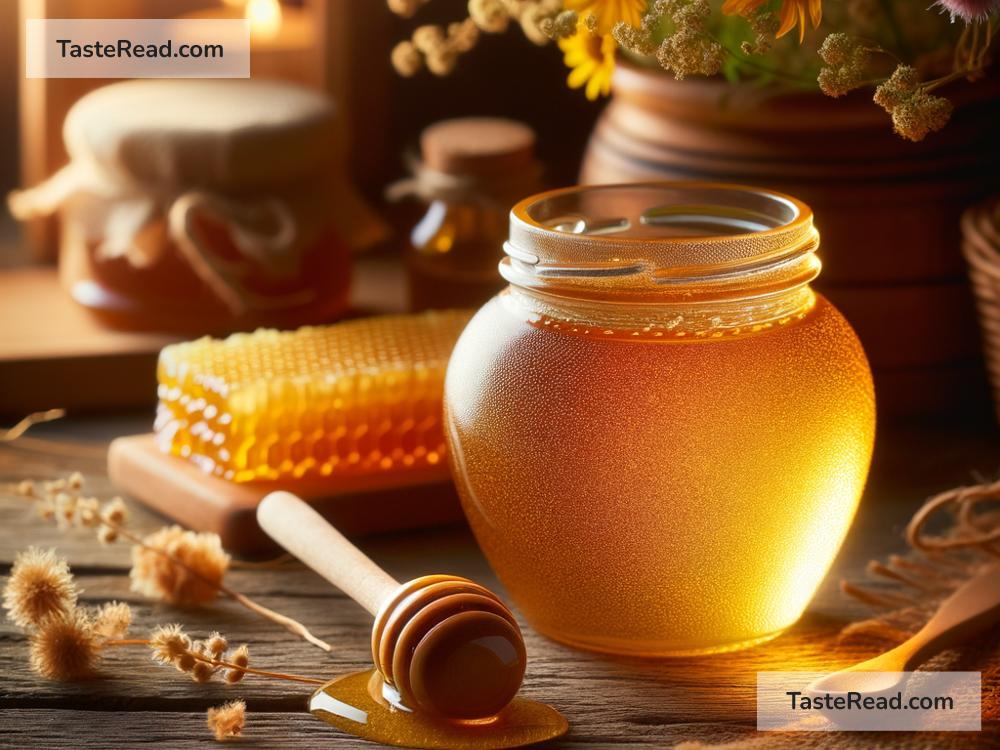How Honey Became the Elixir of the Gods
Honey is one of nature’s sweetest gifts. It’s golden, sticky, and delicious, but it’s so much more than a sugary treat. For thousands of years, honey has been admired for its magical qualities, used in rituals, featured in myths, and prized as a remedy for both body and soul. Often referred to as the “elixir of the gods,” honey holds a special place in human history—and an even more special place in our hearts.
So how did honey earn this divine reputation? Let’s explore its fascinating journey from beehive to sacred symbol.
Honey in Ancient Myths and Legends
Long before it was stored in cute bear-shaped bottles, honey was tied to powerful myths. Ancient cultures believed honey was a heavenly substance gifted by the gods. The Greeks, for instance, told stories of bees carrying honey straight from Mount Olympus—the home of Zeus and the other divine beings. Honey wasn’t just food; it was seen as the gods’ own nectar, giving immortality and great strength.
In Norse mythology, honey plays a role in the creation of “mead,” an alcoholic drink brewed from fermented honey. Mead was believed to be magical, capable of inspiring poetry, wisdom, and courage. The Norse gods were said to consume it to keep their powers strong, solidifying honey’s reputation as a sacred substance.
Even in Hinduism, honey was considered one of the “Panchamrita,” or five sacred foods, used in rituals to honor deities. Its purity and sweetness symbolized the blessings of life and prosperity. Across cultures, honey’s natural beauty and ability to resist spoilage contributed to its divine status.
Honey as Medicine
The healing powers of honey were also regarded as miraculous. Long before modern medicine, honey was used to treat wounds, infections, and illnesses. Ancient Egyptians included honey in their remedies and even placed pots of it in the tombs of their pharaohs to nourish their souls in the afterlife. Archaeologists have found 3,000-year-old honey during excavations, and shockingly, it was still edible!
How is this possible? Honey never spoils when stored properly. It contains natural enzymes and acids that prevent bacteria and mold from growing. This made it invaluable for treating cuts and burns, protecting them from infection.
In ancient Greece, Hippocrates—often called the father of medicine—used honey to cure sore throats, ulcers, and digestive issues. Honey’s health benefits were undeniable, and people began to think of it as a gift from the gods. Even today, honey is used as a natural remedy for coughs, colds, and skin care, proving its timeless value.
Honey in Rituals and Offerings
Honey didn’t just heal the body. It was also seen as a sacred substance that connected humans to the divine. Throughout history, people have offered honey to their gods and ancestors during religious ceremonies.
In ancient Egypt, honey was offered to the sun god Ra, while in Greece, it was used as a ceremonial offering to the gods and spirits of the dead. Honey cakes were sometimes placed in tombs to ensure the deceased could enjoy sweet blessings in their next life.
Honey’s symbolism of sweetness, purity, and fertility made it ideal for weddings, births, and harvest celebrations. In Jewish tradition, honey is eaten during Rosh Hashanah—the Jewish New Year—to symbolize the hope for a sweet year ahead. The golden liquid wasn’t just food; it carried deep spiritual meaning.
Honey and Bees: A Magical Connection
Part of what makes honey so special is the way it’s made. Bees are hardworking creatures that tirelessly gather nectar from flowers, turn it into honey, and store it in perfectly constructed hexagonal hives. This process has fascinated humans for centuries.
In many ancient cultures, bees themselves were thought to be sacred. They were seen as messengers between earth and heaven, quietly working as nature’s miracle makers. Without bees, there would be no honey. This connection added an extra layer of reverence to the golden substance.
For example, the Greeks believed that the priestesses of Demeter, the goddess of agriculture, were called “Melissae,” which means bees. Bees weren’t just insects; they were symbols of harmony, industry, and the divine order of life.
Honey Today
While honey isn’t worshipped in the same way today, it remains deeply valued. It’s a staple in kitchens, used in drinks, baked goods, and savory dishes. It’s also still used in skincare and medicine, proving its versatility.
For many people, honey is a symbol of nature’s abundance. Every drop is a result of countless hours of work by tiny, buzzing bees. From its role in myth and legend to its practical uses, honey truly deserves its title as the “elixir of the gods.”
The next time you drizzle honey on your toast or stir it into your tea, take a moment to appreciate its rich history. It’s more than a sweet treat; it’s a connection to ancient cultures, sacred rituals, and the miraculous world of bees. Honey isn’t just food—it’s a story, a symbol, and a gift from the heavens.


